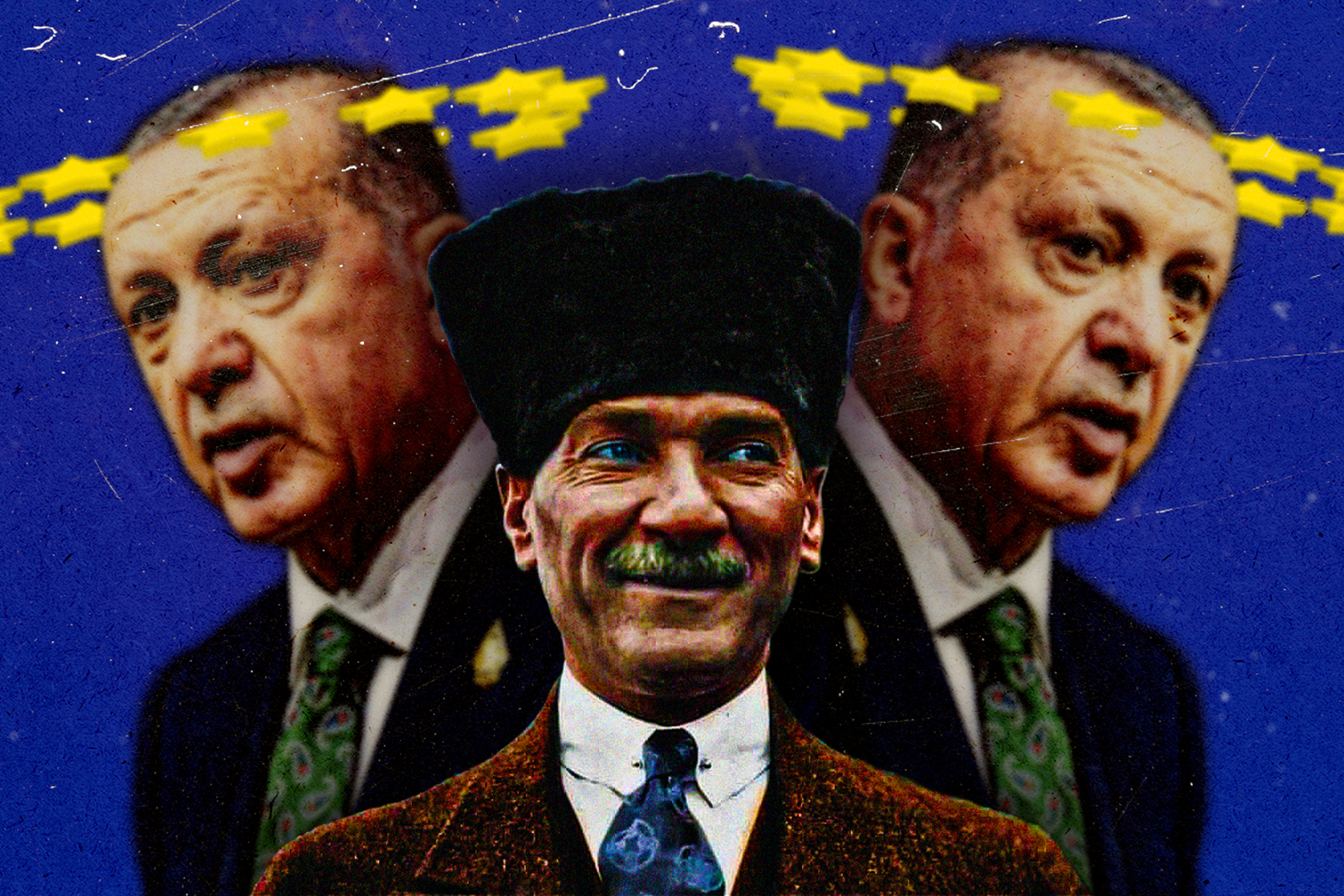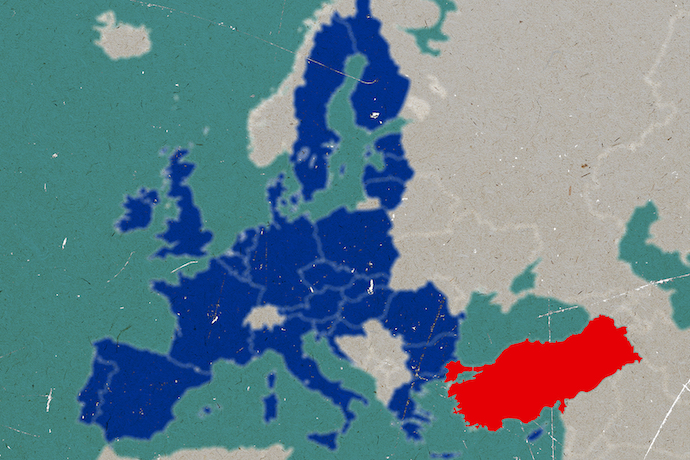
Turkish EU Membership is Long Overdue
Since its inception in 1923 under the transformative leadership of Mustafa Kemal Atatürk, Turkey has consistently gravitated towards the West, revamping its political, social, and economic frameworks to align with Western standards. This strategic shift aimed to deepen Turkey’s investment, cultural, and political connections with European countries.
Turkey’s bid in 1959 to join the European Community (EC) was as much about advancing its aspirations as it was about counterbalancing Greek influence within the bloc. However, despite decades of negotiations, Turkey’s journey towards European Union (EU) membership—following the EC’s evolution into the EU—has been marked by significant delays. As of 2023, Turkey stands no closer to EU membership than it did at the beginning of the 21st century.
The EU’s prolonged hesitation in admitting Turkey could backfire. Should Turkey’s resolve wane, the EU stands to lose a valuable prospective member. A recent comprehensive poll indicates a growing sense of apathy among Turks—the more the EU prolongs Turkey’s accession, the less the Turkish public is concerned with its outcome.
Following the end of the Cold War, the United States has gradually reduced its global footprint, paving the way for a multipolar world. This article does not seek to judge this shift but rather to examine its implications for the power dynamics in Europe and West Asia.
‘Power abhors a vacuum’ rings true in the context of the Russo-Ukraine conflict. This conflict emerges partly from a perceived pullback by the United States in strategic global regions. Russia, concentrating its military might on Ukraine, has scaled back its forces from areas including the Caucasus. This recalibration has allowed Turkey to quietly but assertively promote its interests in the region, progressively moving closer to the Iranian border.
As the European Union’s edges are increasingly fraught with conflict, a robust military posture is imperative, particularly along the EU’s southern periphery. A formidable military presence serves dual purposes: safeguarding against hostile entities and securing a reliable energy supply amid the diminishing reliance on Russian resources. Turkey is strategically positioned to fulfill both roles.

Ranked as the world’s 15th most powerful military, Turkey’s armed forces are formidable, boasting over a million personnel across its army, air force, navy, and paramilitary units. Turkey also commands the globe’s 9th largest air force.
Strategically positioned on the Anatolian Peninsula—also known as Asia Minor—and the eastern segment of Thrace, Turkey serves as a pivotal juncture between Europe and Asia. As a member of NATO, Turkey’s unique geographic location is crucial, providing a buffer between the continents. With the shifting global power dynamics, however, the European Union’s reliance on Turkey to secure its southern border may be precarious. The EU’s hesitancy to integrate Turkey could potentially alienate this key ally, risking the security of its southern periphery in the future.
Turkey’s cultural trajectory has been leaning towards Western values, yet it remains significantly influenced by Arab countries, more so than by Europe. This influence is often highlighted by the European critique of Turkey’s internal affairs, particularly regarding human rights. A stark example was the post-coup purge in July 2016, when thousands of Turkish government workers and military personnel were dismissed or jailed, and the rest fled Turkey to avoid harassment.
Adding to the complexity of EU-Turkey relations are the contentious ties with Cyprus and Greece. The delineation of exclusive economic zones by the Seville Map, perceived to disproportionately benefit Greece, has exacerbated tensions.
The EU formally halted accession negotiations with Turkey in 2018, citing concerns over President Recep Tayyip Erdoğan’s authoritative measures post-coup. Recent reports, including a New York Times article, suggest European diplomats consider Turkey’s accession to the EU as increasingly improbable, citing deteriorating standards in the rule of law and human rights protections for minorities and vulnerable groups.
Despite the European Union’s strategic use of membership prospects to influence Turkey’s stance on Sweden’s NATO bid, there exists a perception of inconsistency. This perception is bolstered by the relatively lenient scrutiny applied to Greece and Cyprus during their EU accession despite notable concerns regarding human rights and economic advancement. Moreover, the expedited consideration of Ukraine for EU membership has raised questions about apparent double standards, suggesting a hierarchy wherein some nations are deemed “more equal” than others.
A critical point for reflection is the EU’s apparent hesitation to embrace a nation with a predominantly Muslim population, which would consequently push the EU’s borders closer to conflict-prone areas like Iraq, Syria, and potentially Iran, given the unfolding events in the Caucasus. Such reticence may be shortsighted when considering the broader geopolitical landscape.
Turkey’s potential EU membership offers palpable advantages, such as bolstering the Union’s military capabilities and infusing much-needed economic vitality into its more regulated economies.
Turkey’s strategic location also positions it as a pivotal gatekeeper in the current migration crisis, potentially acting as a deterrent to unwarranted flows into Europe.
Cultural exchange between Turkey and the EU could pave the way for a modern-day Hellenization, fostering the adoption of human rights and rule of law principles within the Turkish populace. The educational standing of Turkey’s citizens suggests a readiness for such integration, which could counterbalance the country’s gravitation towards Arab influence. Turkey’s inclusion in the EU would thus be mutually beneficial, promoting a symbiotic relationship that fortifies the EU and incentivizes Turkey to uphold and propagate Western values and governance standards.
Evoking Lyndon B. Johnson’s analogy, it is strategically advantageous to align with potential adversaries, ensuring they are partners contributing positively rather than external forces with opposing agendas.
The inclusion of Turkey within the EU framework stands as a critical strategic move in an era of increasing global uncertainty. The delay in Turkey’s accession risks forfeiting a significant opportunity to fortify Europe’s geopolitical and economic stance.

